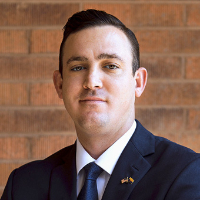Yavapai County, AZ DUI-DWI Lawyers
Sponsored Law Firm
-
 x
x

Click For More Info:
-
Stone Rose Law
8010 E McDowell Road Suite 105 Scottsdale, AZ 85257» view mapCriminal Defense High-Quality & Affordable Representation
If you have been charged with a crime, you need experienced representation from a Phoenix criminal lawyer at Stone Rose Law.
800-964-0510
Craig Williams
Domestic Violence & Neglect, Divorce & Family Law, DUI-DWI, Criminal
Status: In Good Standing
Daniel F Furlong
DUI-DWI, Criminal, Bankruptcy, Bankruptcy & Debt
Status: In Good Standing Licensed: 43 Years
Krista M Carman
Litigation, DUI-DWI, Wrongful Death, Household Mold
Status: In Good Standing Licensed: 22 Years
 Steven Scharboneau Scottsdale, AZ
Steven Scharboneau Scottsdale, AZ Practice AreasExpertise
Practice AreasExpertise
